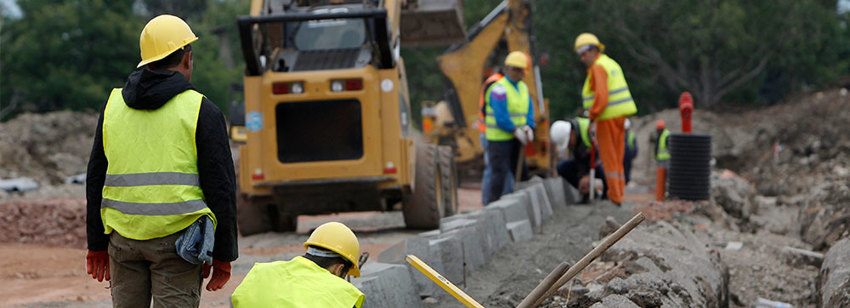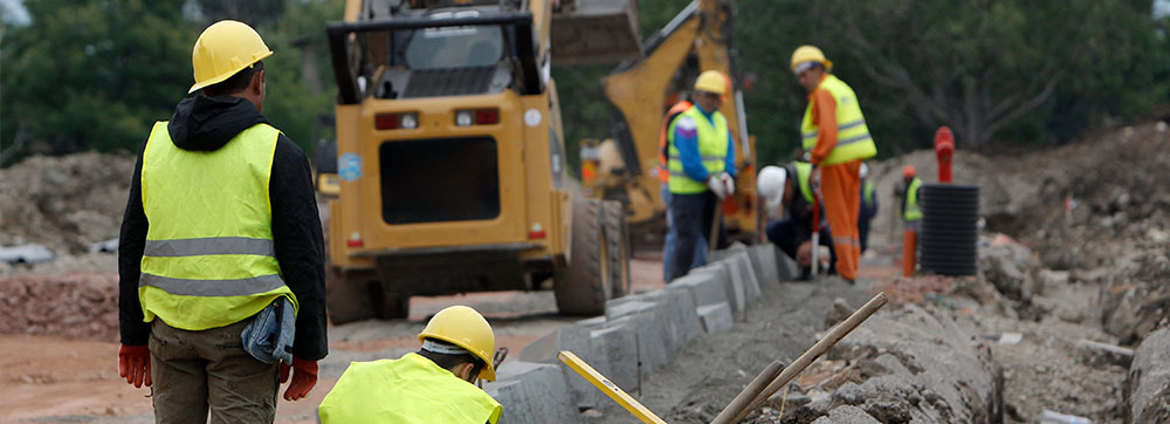The long-awaited and much heralded Fast-Track Approvals Bill has now been released. This has been expected as part of the Government's 100-day plan. Although fast-track consenting is nothing new, this regime is fundamentally more enabling, and broader in its scope, than previous fast track legislation. It is the "dramatic change" referred to by the Prime Minister. On the other hand, the Environmental Defence Society has described it as "the government's war on nature" going "nuclear".
The Government has been steadfast in its policy approach to removing barriers to consenting, and other necessary approvals, for infrastructure projects. During the Government's announcement the Prime Minister clearly stated his view that we must shift from an "obstruction economy" and get the country moving. Minister Jones picked up on that theme, stating it is a shift from "a cancel economy to a can-do economy".
So, in summary, what is the fast-track approvals process?
- Which projects can use the process? Nationally and regionally significant projects can seek to utilise the process. Projects can be listed in Schedule 2A, and automatically referred (listed projects) or in schedule 2B, for nationally or regionally significant projects, which require joint Minister approval before referral (listed referred projects). Other projects can be referred later (referred projects).
The Bill does not currently contain any projects. Projects will be decided on by a yet to be appointed fast-track advisory group, subject to Cabinet approval, with the list of projects to be added to the Bill later in the legislative process. The projects are likely to include public infrastructure (such as roads, housing, fresh water and waste water) and private projects (such as renewable electricity, housing, mining and aquaculture projects). - One stop shop: The process will cover a wide range of approvals, including those under the Resource Management Act 1991 (RMA), Wildlife Act 1953, Conservation Act 1987, Reserves Act 1977, Freshwater Fisheries Regulations 1983, Heritage New Zealand Pouhere Taonga Act 2014, Exclusive Economic Zone and Continental Shelf (Environmental Effects) Act 2012, Fisheries Act 1996, Crown Minerals Act 1991 and the Public Works Act 1981.
- What are the roles of the joint Ministers: The Ministers of Infrastructure, Transport, Regional Development, and depending on the approval, Conservation (joint Ministers) are the key decision-makers. They have two core roles: deciding on the referral of projects and making the final decision on applications for approval, based on the expert panel's recommendation. The joint Ministers can deviate from the recommendation provided they have analysed the recommendations against the relevant assessment criteria. The joint Ministers can also refer the project back to the expert panel for further consideration.
- What is the role of expert panels? Panels will make a recommendation to approve (with conditions, if required) or decline the application to the joint Ministers. The panel must assess all environmental effects of the project (except effects on trade competition and, for housing, any perceived effects of the type of housing), and relevant Treaty settlements, Takutai Moana commitments, Mana Whakahono a Rohe and Joint Management Agreements.
- What is the role of Part 2 of the RMA? The Bill changes how Part 2 applies. It specifies that the greatest weight is to be given to the purpose of the Bill, followed by sections 5, 6 and 7 of the RMA (in that order), and relevant RMA policy and planning documents. The Bill does not refer to the RMA's Treaty of Waitangi clause (section 8).
- What is the role of policy and planning documents under the RMA? As above, the Bill makes operative RMA policy and planning documents subordinate to the purpose of the Bill. The Bill overrides any additional information requirements in a policy statement or plan and provides a pathway for prohibited activities to be consented.
- Who can participate / comment? As with the earlier fast-track legislation, participation is limited. At the referral stage, relevant ministers, local authorities, iwi authorities, Treaty settlement entities / related entities and Takutai Moana rights holders must be invited to comment. At the recommendation stage, these groups must be invited to comment, alongside landowners and occupiers (and those of adjacent property), relevant ministers, the Director General of Conservation, requiring authorities and other persons invited by the panel. Comments must be received within 10 working days of the invitation.
- Relevance of climate emission mitigation? Climate change mitigation and removal of greenhouse gases is one of the eligibility criteria for projects to be referred. Climate emission provisions in plans (if any) will be relevant to the degree set out above.
- What are the timeframes? Expert panels will have 25 working days after receipt of comments (or a time provided in the referral order) to make their recommendation to the Minister (with any conditions). However, if the scale of the project requires, this can be extended by up to 25 working days (or a time provided in the referral order).
- Will there be a hearing? No, unless the panel considers it is required in the circumstances.
- Role of Councils? Local authorities will be invited to comment at the referral and recommendation stages. Applicants are also required to engage with local authorities before they apply. Information can be requested from local authorities and local authorities can recover actual and reasonable costs of participation from applicants. Granted consents are deemed to have been granted as if by the local authorities.
- Any appeals? Appeals are limited to point of law appeals to the High Court. Any further appeals must seek leave from the Supreme Court. Appeal rights are only available to applicants, submitters, the Attorney General and any person with an interest greater than the public generally. Judicial review rights are preserved.
- Resourcing and management of panels: Panels are to be supported by the Environmental Protection Authority and panel members will be remunerated in accordance with the Government's fees framework. Given the tight timeframes, complexity and number of potential applications, the demand on and for panel members is likely to be a factor in the successful implementation of the new law.
- Information requirements for applicants? For the referral of projects, information is required for referral and then comprehensive information is required for the application for assessment. Assessments of Environmental Effects will remain substantial, complex and expensive documents. Given the timeframes of the process they must be robust and are unlikely to be substantially different to current requirements.
The Bill will proceed through select committee process and is likely to draw a significant number of submissions, the Government needs to proceed at pace if it is to enable the delivery of projects within the present electoral term (as the Government hopes). Given the Government's intentions, the Bill certainly delivers, but there are matters within the Bill that require further consideration if it is to fully achieve its purpose. In particular, the Bill contains a lengthy process for referrals and provides for new processes (including Ministerial approval) and new terms (including "facilitate") which raise potential litigation risk, especially for those initial projects.
In addition, while the new Bill will fundamentally change the consenting of projects, it must deliver long-term outcomes for the benefit of New Zealand's economy and environment. Further, statutory approvals are one (important) step in the journey to deliver projects. Significant improvement is still required in relation to business cases, contracting and procurement, material supply (and cost), having a competitive construction sector and the necessary skilled workforce.
The Bill has been referred to the Environment Committee. Submissions on the Bill close on 19 April 2024. The Select Committee report is due on 7 September 2024.
If you are interested in the Bill, in making a submission to the select committee, or in seeking to have a project listed please get in touch with one of our team.
This article was co-authored by David Allen (partner), Vanessa Evitt (partner), Jennifer Caldwell (partner), Dave Randal (partner), Thad Ryan (partner) and Francesca Dykes (solicitor).



















